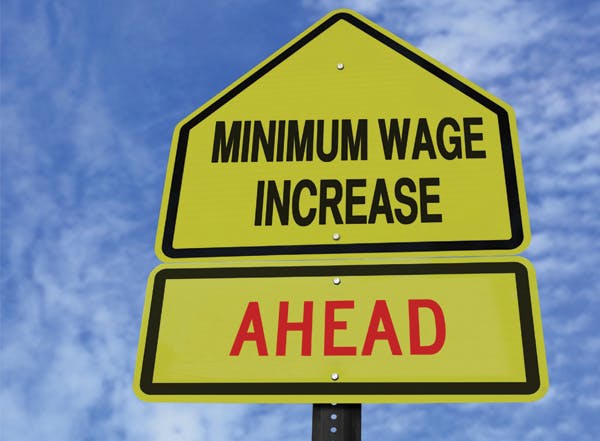The industrial umpire has increased the minimum wage 3 per cent, lifting it from $622.20 a week to $640.90 as of July 1.
The ruling by the Fair Work Commission will directly affect over 1.5 million employees currently on modern awards and the national minimum wage.
Fair Work Commission President, Justice Iain Ross, delivered the decision to increase the minimum wage by $18.70 a week, saying Australia’s economic fundamentals justified the move.
“It is appropriate in all the circumstances that the national minimum wage and the minimum wages in modern awards be increased,” said Justice Ross.
“Wages growth is forecast to increase only moderately from current low levels. The outlook for contained inflation growth and relatively low aggregate wages growth provides scope for increasing minimum wages without inflationary consequences.”
While the planned abolition of the carbon tax did not factor into the decision, Justice Ross said the increase to the superannuation guarantee to 9.5 per cent from July had moderated the minimum wage increase.
“The increase in modern award minimum wages and the national minimum wage is lower than it otherwise would have been in the absence of the super-guarantee rate increase,” he said.
He also warned that “earnings inequality” was increasing, saying that bargained rates of pay and average earnings had outstripped award rates of pay over the last five year.
“This has reduced the relative living standards of award reliant workers and reduced the capacity of the low paid to meet their needs,” he said.
The ACTU had been pushing for an increase of $27, but employer groups had argued for a smaller rise of only $8.50.
Executive director of the Australian Retailers’ Association, Russell Zimmerman, told Dynamic Business he was “very disappointed” at the decision.
“I would point out that this increase will put a full time retail employee on level 1 at 703.90 cents per week or 18.52 per hour,” he said.
“However, I would add that most retail employees would work Saturdays and Sundays. They get time and half on Saturday and double time on Sunday. After the first of July when the last tranche of the modern award changes gets passed through, that will be the case.”
“If they can reduce their staffing levels they will. Particularly the SME sector. This is where it’s going to hit the hardest.”
Australian Chamber of Commerce and Industry chief executive Kate Carnell warned the move would destroy job opportunities and hit small to medium mum and dad operators the the hardest.
“There is this combination body blow to many small businesses who are hit with wage rises, higher superannuation at 9.5 per cent from July and excessive penalty rates particularly on Sundays. Unfortunately, the thing that’s going to give way first – is jobs,” he said.
“It’s one thing for employers to trade off wages for genuine productivity gains – that’s how we improve real wages – but artificially driving up wages with the stroke of a pen is not how we create prosperity.”

